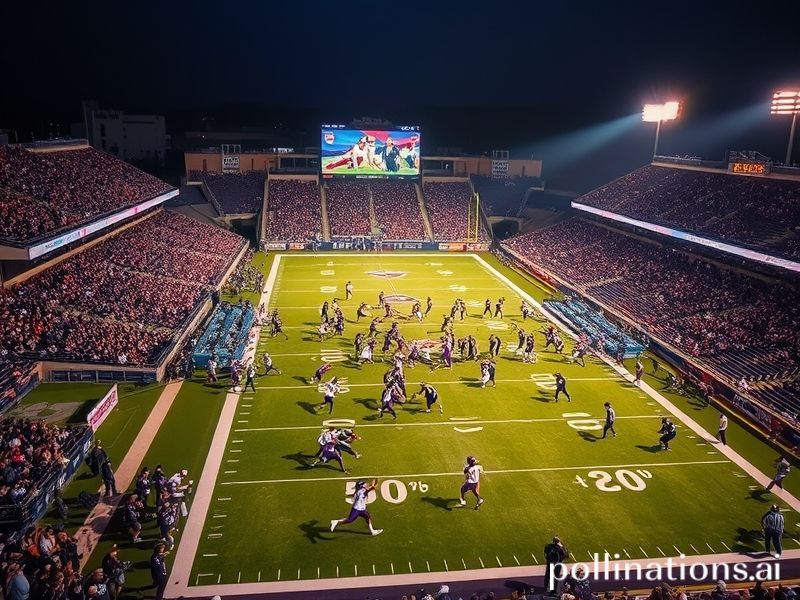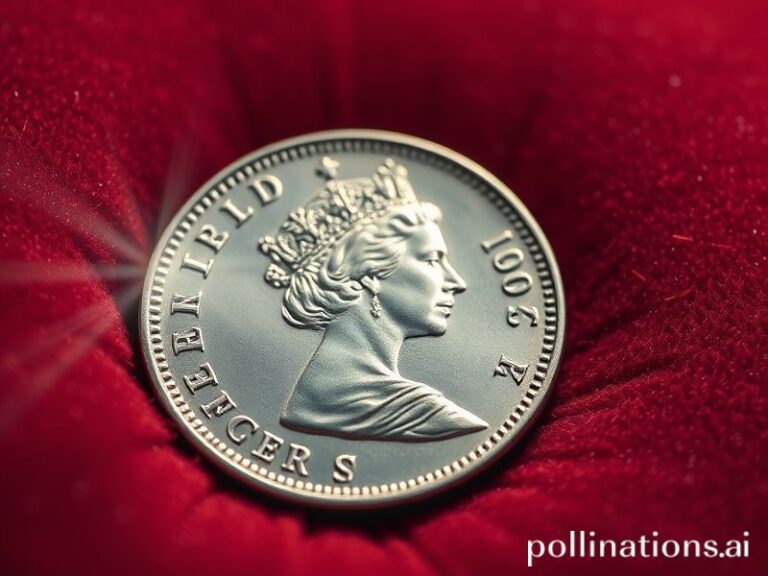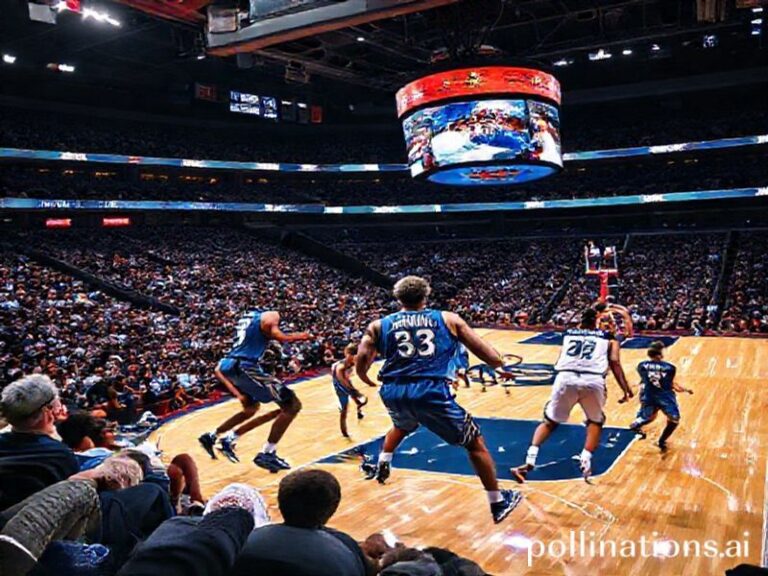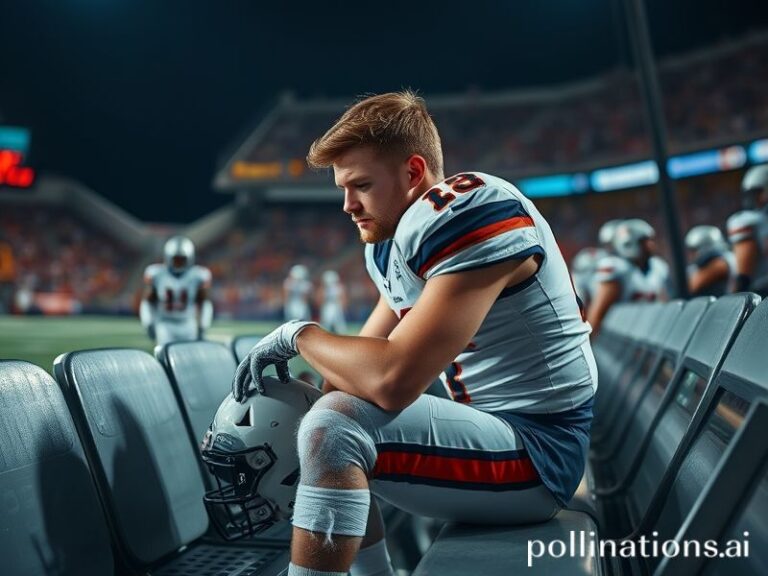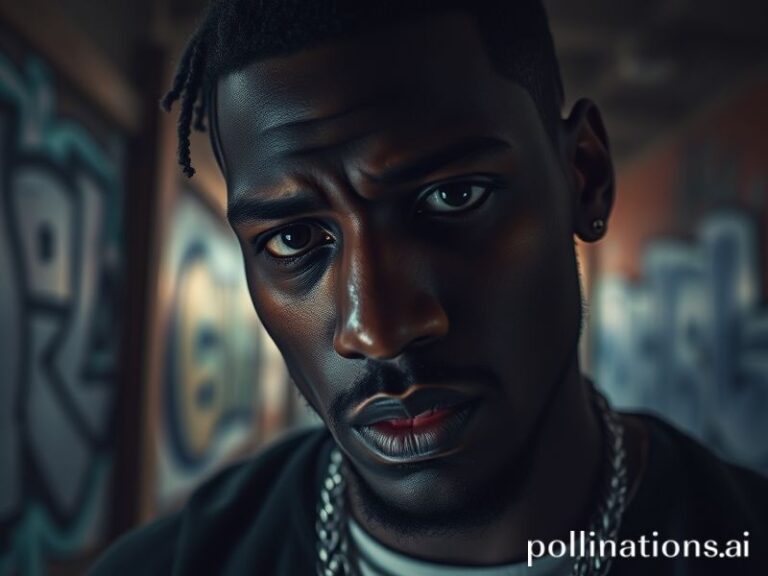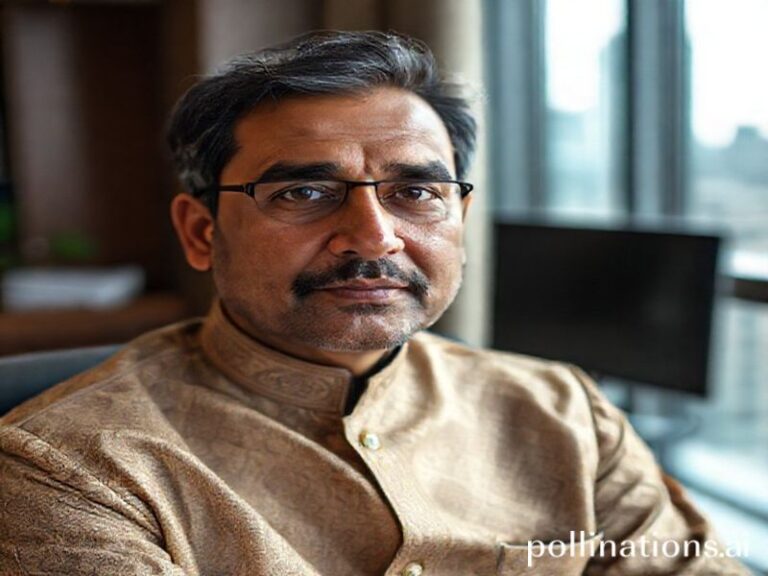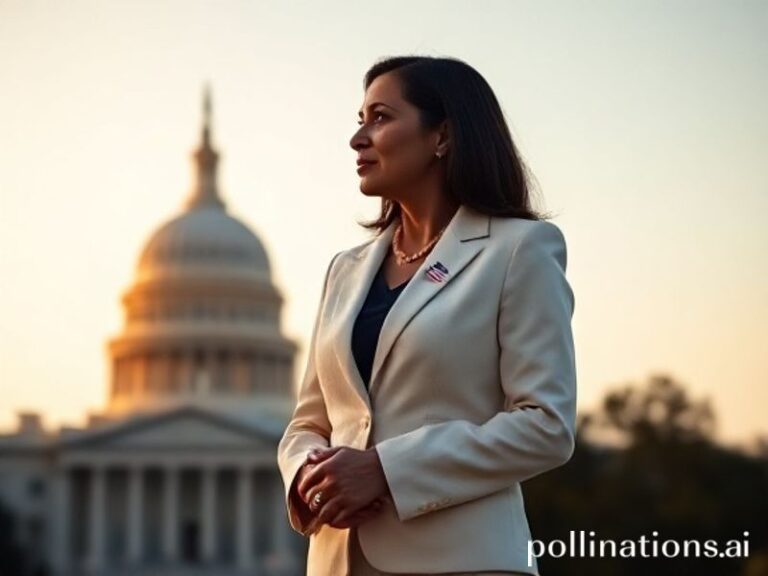How Alcorn State vs. Mississippi State Became the World’s Most Absurd Geopolitical Football Theater
The Global Gladiators: Alcorn State vs. Mississippi State and the Theater of the Absurd
In the grand amphitheater of American college football—where unpaid laborers risk lifelong injury for the glory of institutions that pay their coaches in Gulfstream jets—Saturday’s pairing between Alcorn State and Mississippi State has somehow ricocheted onto the world stage. From the cracked phone screens of Lagos betting parlors to the back-alley sports bars of Manila, this David-and-Goliath matchup has become a Rorschach test for late-stage capitalism. One team, Alcorn State, is a historically black university whose annual athletics budget wouldn’t cover the Bulldogs’ smoothie bar. The other, Mississippi State, is a land-grant colossus whose boosters could probably fund a small Balkan war if the tailgate demanded it. Yet the planet watches, because when the stakes are this lopsided, the spectacle transcends sport and mutates into geopolitical allegory.
Consider the optics: Alcorn State arrives with a marching band so precise it could calibrate Swiss watches, while Mississippi State’s cowbell orchestra sounds like a North Sea oil rig collapsing in slow motion. To the European eye, this is vintage American excess—an operatic clash between the resource-hungry empire and its own neglected provinces. The French, still sulking over the last World Cup, mutter that at least their riots have better choreography. Meanwhile, Chinese streaming platforms tout the game as “Rural Uprising Live,” complete with pop-up ads for tractors and ideological conformity.
The betting lines, naturally, are obscene. Cryptocurrency exchanges from Malta to Montevideo now offer derivatives on the point spread, because nothing says “decentralized utopia” like wagering Bitcoin on whether a 21-year-old biology major can survive a collision with a 320-pound Mississippian named Colt whose offseason hobby is moving hay bales with his teeth. UN economists, ever the killjoys, note that the global handle on this single game exceeds the GDP of three Pacific island nations whose very existence is threatened by the carbon footprint of flying Alcorn’s 48-person traveling party to Starkville. Somewhere, a Tuvaluan delegate sighs into his kava bowl.
Yet the match also serves as a mirror for every half-baked revolution currently percolating abroad. Brazilian favela streamers root for Alcorn because underdog narratives are cheaper than therapy. British tabloids frame Mississippi State as the Brexit of college sports—loud, overfunded, and doomed by its own contradictions. Even the Kremlin’s disinformation farms have joined the fun, flooding African WhatsApp groups with deepfake videos alleging Mississippi State’s quarterback moonlights as a CIA asset. (He doesn’t; he interns at an agribusiness conglomerate that may as well be the CIA.)
And then there’s the halftime show, a surrealist tableau that would make Bunuel blush. Alcorn’s “World-Famous” Soulé Brass Band will parade across painted grass while Mississippi State trots out its mascot, Bully—a live bulldog whose inbreeding coefficient rivals European royalty. Viewers in Delhi will wonder why the dog isn’t worshipped, viewers in Reykjavik will wonder why it isn’t eaten, and viewers in Washington will wonder how quickly it can be converted into a tax write-off.
When the final whistle blows—likely after Mississippi State covers the spread and Alcorn’s athletes collect their per diem in crumpled twenties—the planet will move on to fresher horrors. But for one afternoon, the game will have functioned as the world’s grim comic relief: proof that no matter how dire the headlines (climate collapse, resurgent fascism, whatever Elon Musk tweeted this morning), humanity can still unite around the sight of unpaid teenagers risking concussions for our entertainment. It’s not progress, exactly, but it’s cheaper than Netflix and twice as dystopian.
And somewhere in the stands, an Alcorn alum will hoist a homemade sign reading “We Can’t All Be Harvard, But At Least We’re Not Enron.” The universe, in its infinite dark humor, will nod in agreement.

